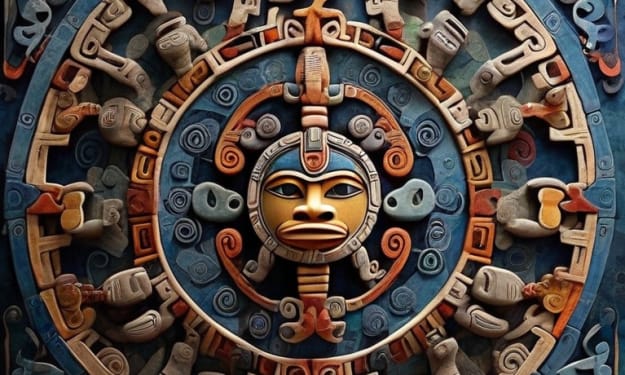Socialogy and religion
How religion play role in society

Sociology and Religion: Understanding the Social Institution
Religion is often viewed as a personal belief system, but it also plays a significant role in shaping social norms, values, and practices. Sociology helps us understand religion as a social institution, examining its impact on society and individuals. In this article, we'll explore how sociologists approach religion, its functions in society, and its influence on social cohesion, inequality, and individual purpose.
Defining Religion
French sociologist Emile Durkheim defined religion as a unified system of beliefs and practices that recognize the sacred, distinguishing it from the profane (mundane aspects of life). This definition encompasses various religious traditions and highlights the symbolic nature of religious practices.
Symbolic Interactionism and Religion
Symbolic Interactionism, a sociological perspective, focuses on the symbols and meanings humans construct. Religion relies heavily on symbols, such as rituals, totems (objects considered sacred), and dress codes, to convey faith and create a sense of community. These symbols unite individuals and distinguish them from others.
Functions of Religion
Durkheim identified three primary functions of religion:
1. Social Cohesion: Religion unites people around shared beliefs, values, and norms, promoting social cohesion and morality.
2. Social Control: Religion influences behavior, encouraging individuals to act in accordance with societal norms and divine commands.
3. Purpose and Meaning: Religion provides individuals with a sense of purpose and meaning in life, framing their actions within a larger divine plan.
Social Conflict Theory and Religion
While religion can promote social unity, it can also perpetuate inequality. Social Conflict Theory perspectives understand religion as a tool for maintaining social stratification, legitimizing existing power structures. Religion has been used to justify political, economic, gender, and racial inequalities throughout history.
Practical Importance of Religion
In the United States, religion plays a significant role in many individuals' lives, with over 70% of adults considering religion important. Different religions are organized in various ways, and their integration into society varies. Churches, like Catholicism and mainline Protestant denominations, are well-established and integrated, while sects, like Jehovah's Witnesses and Pentecostals, are less formal and attract more disadvantaged followers.
Regional and demographic differences also influence religious affiliations. Catholicism is more prevalent in Northeastern and Southwestern states, while Evangelical Protestantism is more common in the South. Black Americans are more likely to identify with Protestant faiths, particularly evangelical churches.
Secularization and the Future of Religion
Despite its significance, religion's influence in the United States has been declining in recent decades, a process known as secularization. Younger generations are more likely to report no religious affiliation. However, religion's impact on society will continue to be felt, shaping norms, values, and practices.
Religion has played a significant role in building and shaping societies throughout history. Here are some ways in which religion has contributed to society-building:
1. Moral Framework: Religions provide a moral framework for their followers, guiding them on what is right and wrong, and promoting values such as compassion, honesty, and kindness.
2. Community Building: Religions create a sense of community among their followers, providing a shared identity and a sense of belonging.
3. Social Services: Religious organizations have been instrumental in providing social services such as education, healthcare, and charity to their communities.
4. Cultural Heritage: Religions have contributed significantly to the cultural heritage of a society, shaping its art, architecture, literature, and music.
5. Ethical Guidance: Religions provide ethical guidance on issues such as justice, forgiveness, and responsibility, helping individuals to make informed decisions.
6. Conflict Resolution: Religious leaders and teachings have often played a role in resolving conflicts and promoting peace.
7. Social Change: Religions have been a driving force for social change, inspiring movements for justice, equality, and human rights.
8. Personal Transformation: Religions have the power to transform individuals, helping them to develop a sense of purpose, meaning, and direction in life.
9. Social Cohesion: Religions have helped to promote social cohesion, bringing together individuals from different backgrounds and fostering a sense of unity and shared values.
10. Emotional Support: Religions provide emotional support to their followers, offering comfort, solace, and hope in times of crisis.
While religion has played a significant role in building societies, it's important to acknowledge that its impact can be complex and multifaceted, and may vary depending on the specific context and tradition.
In conclusion, sociology helps us understand religion as a social institution, influencing individual and collective behavior. By examining religion through various sociological perspectives, we can better comprehend its role in shaping society and individual experiences.
About the Creator
Ali bukhari
storyteller and writer ,a good poet.write the sentiments and miseries of society.my content will have authentic info .book lover , traveller,observer and writer.
Enjoyed the story? Support the Creator.
Subscribe for free to receive all their stories in your feed. You could also pledge your support or give them a one-off tip, letting them know you appreciate their work.






Comments (1)
Thanks for sharing it.